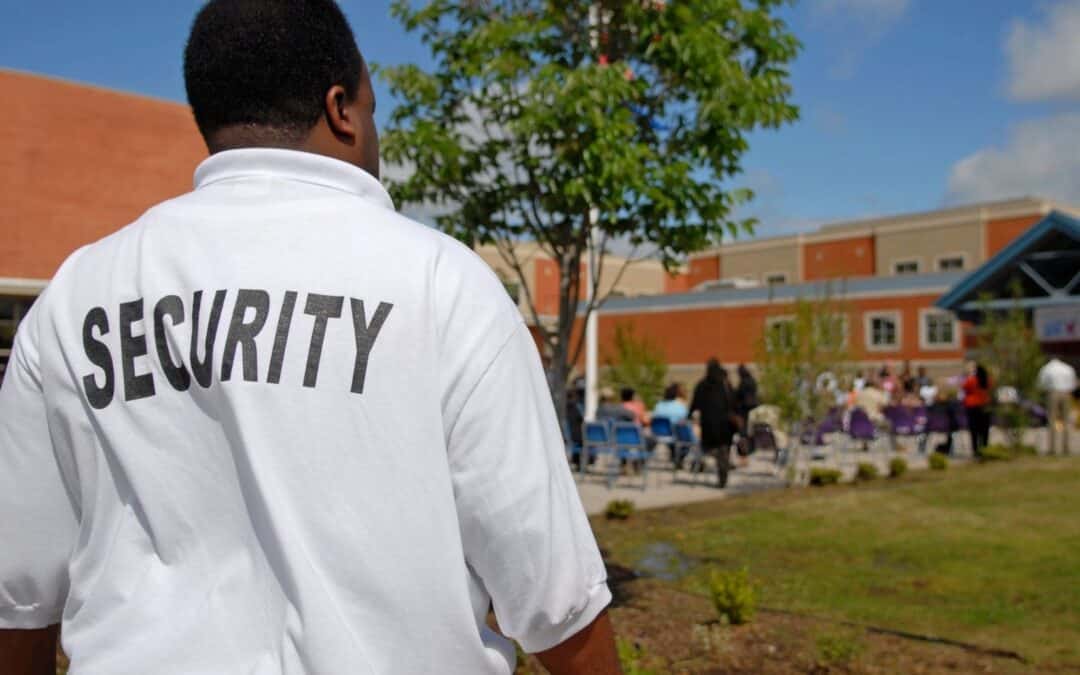Ensuring safety in educational institutions is crucial for students’ well-being and academic success. As students return to school, parents, educators and administrators are increasingly concerned about school security. Incidents of violence, bullying and harassment have highlighted the need for robust measures to protect students from harm. In Chicago, personal injury cases related to negligent security have become more prominent, emphasizing the importance of addressing vulnerabilities in school safety protocols. Effective school security measures can prevent harm and minimize the risk of personal injury cases. By prioritizing safety, schools demonstrate their commitment to providing a supportive learning environment.
(Can I Sue for Negligent Security in Illinois? Understanding Personal Injury Claims)
Understanding Negligent Security
Negligent security refers to the failure of institutions, including schools, to provide adequate safety measures, leading to harm or injury to individuals. In the context of schools, this can include inadequate supervision, insufficient emergency response plans and lack of security personnel or technology. Negligent security can have severe consequences, including physical harm, emotional trauma and financial losses. Schools have a duty of care to ensure students’ safety, and breaching this duty can result in premises liability. In Chicago, victims of negligent security may seek compensation through personal injury cases. Understanding negligent security is essential for implementing effective safety measures.
Assessing School Security Risks
To address negligent security concerns, schools must conduct thorough risk assessments to identify vulnerabilities. This process involves evaluating physical infrastructure, safety protocols and emergency response plans. Schools should assess potential risks, such as unauthorized access, natural disasters and violence. By identifying vulnerabilities, schools can develop targeted strategies to mitigate risks. Effective risk assessments also involve engaging stakeholders, including parents, teachers, students and local law enforcement. Collaboration ensures diverse perspectives and expertise are considered. Regular risk assessments help schools stay proactive in addressing emerging threats.
Evaluating Physical Infrastructure
Schools should evaluate physical infrastructure to ensure safety. Access control systems, surveillance cameras and emergency response systems require regular maintenance. Lighting and signage are also critical for safety. Well-maintained infrastructure prevents accidents and reduces liability. Secure entrances and exits prevent unauthorized access, minimizing risks. Regular inspections ensure infrastructure remains effective.
Reviewing Safety Protocols
Schools must review safety protocols to ensure effectiveness. Emergency response plans and crisis management procedures require regular updates. Staff training programs should include crisis management, first aid and communication skills. Student supervision policies must ensure adequate monitoring. Regular drills and exercises prepare staff and students for emergencies. Effective protocols reduce response times and minimize harm.
Engaging Stakeholders
Engaging stakeholders is vital for effective school security. Parents, teachers, students and local law enforcement bring diverse perspectives. Collaboration fosters trust and ensures concerns are addressed. Regular communication keeps stakeholders informed. Student participation encourages responsibility and awareness. Community engagement strengthens school safety networks.
Implementing Effective Security Measures
Implementing effective security measures requires proactive approaches. Physical security enhancements include installing security cameras and access control systems. Improving lighting and signage enhances visibility. Securing entrances and exits prevents unauthorized access. Training programs for staff and students promote awareness. Collaboration with law enforcement strengthens emergency response.
Training and Awareness Programs
Training and awareness programs empower staff and students. Regular emergency response drills prepare individuals for crises. Crisis management training enables staff to respond effectively. Student education promotes safety awareness and reporting incidents. Safety protocols and emergency procedures become second nature.
Collaboration with Law Enforcement
Collaboration with law enforcement enhances school security. Partnerships facilitate joint safety assessments and training exercises. Local police departments provide expertise and resources. Regular communication ensures rapid response times. Schools benefit from law enforcement’s knowledge and capabilities.
Legal Options for Victims of Negligent Security
Victims of negligent security in Chicago schools may seek compensation. Consulting a personal injury attorney specializing in negligent security cases helps individuals understand rights and options. In Illinois, the statute of limitations for personal injury cases is two years, making prompt consultation crucial. Proving negligent security requires establishing duty of care, demonstrating breach of duty and showing causation and damages.
Proving Negligent Security
Proving negligent security involves demonstrating breaches in duty of care. Establishing duty of care requires showing schools had responsibility for ensuring safety. Demonstrating breach involves evidence of inadequate measures or negligence. Causation requires linking breaches to harm or injury. Damages involve quantifying harm or losses.
Conclusion
Protecting students requires proactive measures. Schools must assess risks, implement security measures and collaborate. Victims of negligent security should explore legal options. Effective school security ensures students’ well-being and academic success. By prioritizing safety, schools demonstrate commitment.
If you’re looking for an experienced Chicago personal injury lawyer to help navigate your claim, we will fight assiduously for your right to the compensation you deserve. Call Bizzieri Law Offices at 773.881.9000. The case evaluation is free, and we never charge a fee unless we recover damages for you.

